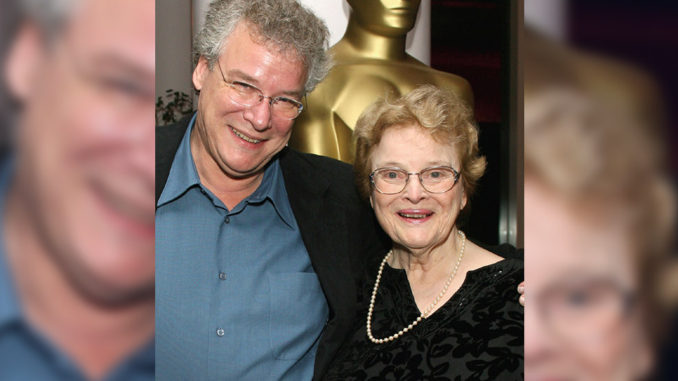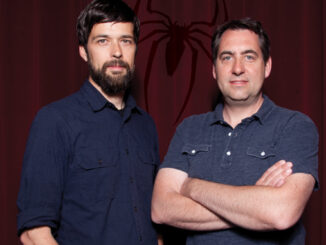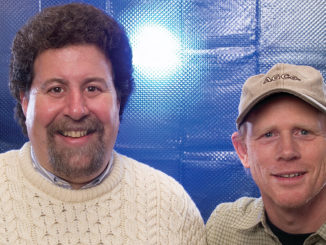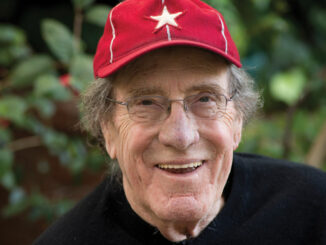
by Kevin Lewis
Tom Fleischman’s first contact with motion picture production occurred when his mother, Dede Allen, took him to the set of The Hustler (1961). It was a prophetic film because 25 years later, he was re-recording mixer on Martin Scorsese’s sequel to The Hustler, The Color of Money (1986). And Allen, of course, got her start in the business in the sound area as a sound editor.
Fleischman, MPSE, CAS has been the re-recording mixer for many of Scorsese’s films, including The Aviator (2004), for which he was won the Cinema Audio Society Award, and the recent The Departed (2006). He has functioned in the same capacity for over 10 of Jonathan Demme’s films, and has worked for such directors as Ron Howard, Warren Beatty, Spike Lee, John Sayles and Mike Nichols, among others. His next film is The Brave One, directed by Neil Jordan and due this fall. CineMontage spoke with Fleischman about his mother and what he learned from her.
CineMontage: What was it like to go on the set of The Hustler and be introduced to motion picture production?
Tom Fleischman: I was ten years old and one night, my mother said, “Hey, why don’t you come to work with me. We’re shooting at night, and you can come down with me if you want.” Oh, man, that was so exciting for me. I had never really been to a movie set. It was a big deal to meet Paul Newman, Robert Rosson and whoever else was there, and to watch them shoot this film. It was something that never, ever left me. It woke me up to what my mother did––because at that time, I just knew she went to work every morning.
CM: You worked with your mother when you did the sound mixing for Reds in 1981, which Dede edited with Craig McKay…
TF: I actually worked on two other films with her. We worked on Reds, Harry and Son [1984] and John Q [2001] together. I was one of the mixers on Harry and Son with Dick Vorisek, and I was the lead mixer on John Q.
Craig McKay had a lot to do with Jonathan Demme giving me my first break. Melvin and Howard [1980] was really the first commercial feature that I did. I am very grateful to both Jonathan and Craig for giving me that shot.
“I feel incredibly fortunate to be in the business that I’m in and doing what I do” – Tom Fleischman
CM: Dede said she inherited her love of dramatic performance from her mother and grandfather, and her editing is so performance-driven. She knows what the actor is thinking and seems to anticipate the next move or sound needed. And you do the same thing with sound––you are very sensitive to the nuances of voice and meticulous about finding the right pitch and level. What was it like collaborating with her since the two of you share that goal of capturing performance?
TF: Well, it was wonderful for me. I loved working with her; it was just a treat. I had learned so much from her over the years, obviously, being around her, growing up with her. I used to take after-school jobs in the cutting room, filling out logbooks, when I was young.
But getting to actually sit in and work with her on those movies––particularly Reds––was just an amazing experience. The film was very complicated. The mix took a very long time and the picture wasn’t locked until right at the end. That film was mixed a scene at a time because they really didn’t have whole reels to work on.
CM: Dede says that Reds is her favorite movie. Do you think she saw her mother––your grandmother––in the Louise Bryant character? Both were free spirits at a time when women were not yet emancipated?
TF: I think that had something to do with it. She also really liked working with Warren Beatty.
CM: Like your mother, you have managed to work with a diverse group of filmmakers––established directors as well as young talents. Is that something you picked up from her?
TF: I think that it has a lot to do with working in New York as opposed to Hollywood. A lot of the new, young people came from here––Spike Lee, Noah Baumbach, Marty Scorsese, Jonathan Demme. As a mixer working in Hollywood, I would have been much more associated with a studio. It’s a whole different climate, working in Hollywood than in New York. I’ve always felt that the New York film community is an incredibly dedicated group of people who love filmmaking. And I find in Hollywood that it’s more like the local industry and everyone kind of goes into it. That’s not to denigrate Hollywood at all. There’s great work coming out of Hollywood, obviously.
“I used to take after-school jobs in the cutting room, filling out logbooks, when I was young. But getting to actually sit in and work with her on those movies––particularly Reds––was just an amazing experience.” – Tom Fleischman
But I feel incredibly fortunate to be in the business that I’m in and doing what I do––and to be able to work with the people I’ve worked with, including Marty and Dede––because it’s something that I like. I think I got a lot of that from my mother. She gave me that love of work. The one thing she always told me is that if you don’t enjoy what you’re doing, don’t do it; find something else.
CM: What did you learn from your father, Stephen Fleischman?
TF: From my Dad, I learned a lot about writing and a lot about story. He had a whole other career, which was just as amazing as Dede’s is in another way. He was in television documentary at CBS with Edward R. Murrow and at ABC on ABC Close-Up. I actually got to work with my Dad a few times too at ABC, which was a great experience.
CM: Your mother gave you the opportunity to work with the best people in film. Despite her uncertain childhood, being raised by and living with various relatives instead of her own mother, Dede became a kind of generous mother to many editors and sound people.
TF: I don’t think she did it for psychological reasons. She was always attracted to people of talent. Yes, I think that was the most important thing my mother gave to people, including me.





